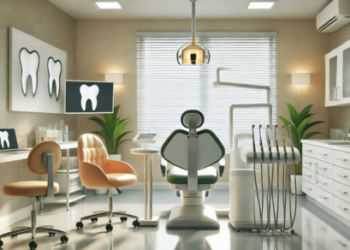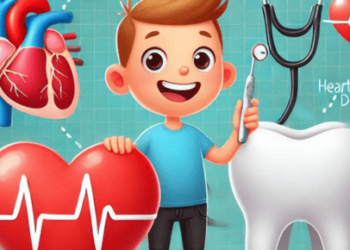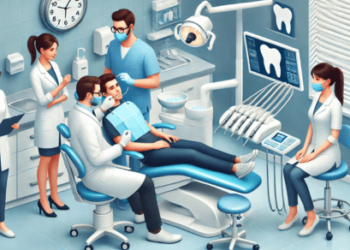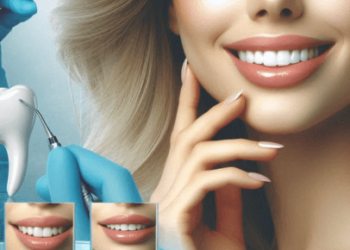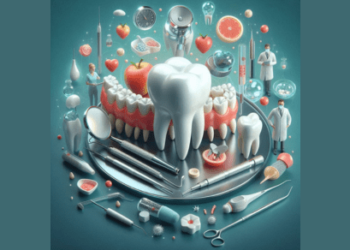
Teeth grinding, also known as bruxism, is a common habit that affects millions of people worldwide. Characterized by the involuntary clenching, grinding, or gnashing of teeth, bruxism can occur during the day or night, often without the individual’s awareness. This habitual behavior can lead to a range of oral health issues, including worn or chipped teeth, jaw pain, and headaches, as well as more severe complications like tooth loss, TMJ disorder, and sleep disturbances.
By exploring the causes, symptoms, and treatment options offered by the Rancho Cucamonga dentist for teeth grinding, you can take the first step towards alleviating this habitual behavior and protecting your overall oral health.
What causes teeth grinding?
Teeth grinding, also known as bruxism, can be caused by a combination of physical, psychological, and lifestyle factors, including:
- Stress and anxiety: High levels of stress and anxiety can lead to teeth grinding as a way to release tension.
- Misaligned teeth: Teeth that are crooked, overlapping, or poorly aligned can cause teeth grinding due to the irregular bite.
- Sleep disorders: Sleep apnea, snoring, and other sleep disorders can increase the likelihood of teeth grinding.
- Jaw alignment: A misaligned jaw or uneven bite can lead to teeth grinding.
- Personality traits: Aggressive, competitive, or perfectionistic personalities may be more prone to teeth grinding.
- Medications: Certain medications, such as antidepressants and stimulants, can cause teeth grinding as a side effect.
- Caffeine and nicotine: Consuming high amounts of caffeine and nicotine can lead to teeth grinding.
- Nutritional deficiencies: Deficiencies in minerals like magnesium and calcium can contribute to teeth grinding.
- Habits: Habits like chewing gum, biting nails, or chewing on objects can lead to teeth grinding.
- Genetics: Bruxism can run in families, suggesting a possible genetic link.
- Age: Teeth grinding is more common in children and adolescents, but can also affect adults.
- Other medical conditions: Certain medical conditions, such as Parkinson’s disease, Huntington’s disease, and gastroesophageal reflux disorder (GERD), can cause teeth grinding.
What are the symptoms of teeth grinding?
Common symptoms of teeth grinding (bruxism) include:
- Worn or chipped teeth: Teeth may appear worn, chipped, or flattened due to excessive grinding.
- Jaw pain or tenderness: Pain or tenderness in the jaw, face, or temples.
- Headaches: Frequent headaches, often described as dull or aching.
- Earaches: Pain or discomfort in the ears.
- Clicking or popping jaw: Clicking or popping sounds when opening or closing the mouth.
- Difficulty opening or closing the mouth: Limited range of motion or difficulty opening or closing the mouth.
- Tooth sensitivity: Sensitivity to hot, cold, or sweet foods and drinks.
- Gum recession: Receding gums due to excessive grinding.
- Loose teeth: Teeth may become loose due to grinding forces.
- Sleep disturbances: Grinding can disrupt sleep patterns or cause fatigue.
- Facial pain: Pain or tenderness in the face, cheeks, or temples.
- Tension headaches: Tightness or tension in the neck and scalp.
- Dental work damage: Grinding can damage dental fillings, crowns, or bridges.
- Jaw locking: The jaw may lock or catch when opening or closing.
How is teeth grinding treated?
Treatment for teeth grinding (bruxism) may include:
- Mouth guards or splints: Custom-made appliances to wear at night or during stressful periods.
- Stress management: Techniques like meditation, deep breathing, or yoga to reduce stress.
- Bite correction: Orthodontics or restorative dentistry to correct misaligned teeth.
- Relaxation exercises: Massages, physical therapy, or relaxation techniques to relax the jaw.
- Medications: Muscle relaxants, anti-anxiety medications, or pain relievers (if necessary).
- Lifestyle changes: Avoiding caffeine, nicotine, and alcohol, and improving sleep habits.
- Biofeedback therapy: Training to become aware of and control grinding habits.
- Dental corrections: Fixing dental issues like crowns, bridges, or implants.
- Physical therapy: Exercises to relax the jaw and facial muscles.
- Alternative therapies: Acupuncture, hypnosis, or chiropractic care (optional).
By understanding the causes, symptoms, and treatment options for teeth grinding, you can take steps to manage this condition and protect your oral health.

